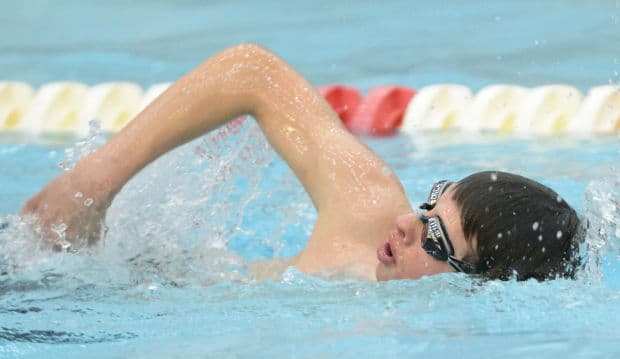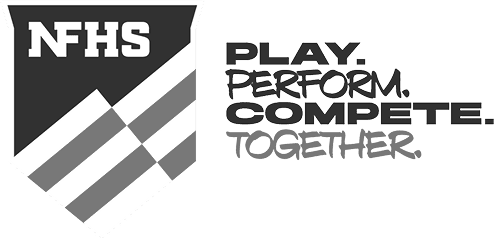Special Olympic athletes' in NSAA state meet a step toward inclusion

From the Lincoln Journal-Star.
A dripping Dexter Drbal stood on the top step of the medal podium Friday, gold medal around his neck, fists in the air, a smile on his face.
It was a big moment for Dexter, 18, a member of Lincoln Southeast's swim team, as well as the other boys on the podium with gold medals, basking in a standing ovation from the packed bleachers.
But it was, perhaps, a bigger moment for what it represents: the efforts of the Nebraska School Activities Association to integrate special needs athletes into state-sanctioned events.
“I think it’s a really big deal,” said Jennifer Schwartz, NSAA assistant director in charge of the state swim meet. “It’s exciting to have them be a part of our meet.”
This weekend's state high school swim meet -- which included 50-yard freestyle heats for boys and girls participating in Special Olympics -- is the second NSAA competition to include Special Olympics athletes.
For the past two years, the state track meet has included an event for Special Olympics athletes, which has been so well-received NSAA officials decided to expand the program.
The Special Olympics swimmers in the water on Friday represented schools from around the state -- and one of NSAA's goals.
Integrating special needs students into high school athletics and other high school activities is a national movement, and a focus for the NSAA, said executive director Rhonda Blanford-Green.
“It’s important because the NSAA has 304 member schools with thousands of students that participate in our activities,” she said. “And there was a group of students we hadn’t embraced under our umbrella.”
NSAA and Special Olympics are partnering to continue inclusion efforts, which ultimately could involve “unified” teams comprised of students with and without special needs. They hope to get an NSAA-sanctioned bowling team created within the next couple of years.
Special Olympics has an initiative, Project Unify, promoting such integrated sports as a way to build upon competitive high school sports, said Carolyn Chamberlin, president and CEO of Special Olympics Nebraska.
In other parts of the country, unified teams have changed the atmosphere at schools, creating a level of acceptance among students that begin to erase the barriers that often separate students with special needs, Chamberlin said.
“How do we make all students just be students?” she asked. “Just embrace every student equally.”
Unified teams can elevate the level of competition for students with special needs and teach students without disabilities about working together.
“It breaks down misperceptions and stereotypes,” she said. “I think it’s a really positive experience in the world of high school athletics.”
Southeast, which included Drbal and Christian McClure on its swim team this year and has four special needs students going out for track, has been a leader in inclusion efforts, said Blanford-Green.
“They’re one I feel stepped outside the box to find a way to include students in these programs,” she said.
McClure and Drbal practiced twice a week with the swim team, participated in team dinners and other team events and worked with a volunteer coach with experience in adaptive athletics, said Southeast athletic director J.J. Toczek.
“First and foremost for us it’s about giving all kids opportunities,” he said. “It’s not just about teaching fundamental skills of athletics ... but teaching life skills.”
Other students on the tight-knit swim team welcomed McClure and Drbal, he said.
“We found out it was a positive experience for all students."
Dennis Drbal, Dexter’s dad, watched his son compete from the Devaney Sports Center bleachers Friday.
“It’s fantastic,” he said.
The young swimmer agreed. “I’m psyched,” Dexter Drbal said.
Jeanne McClure, Christian’s mom, said she hopes inclusion efforts continue, and acknowledged some resistance.
“This is a very small first step,” she said.
Drbal and McClure participated in an exhibition event at an earlier swim meet, Toczek said, and creating opportunities is a team effort between the NSAA and school district officials.
“As a state we really need to get behind and push for this,” he said. “When you get down to it, it’s about kids. All kids.”






